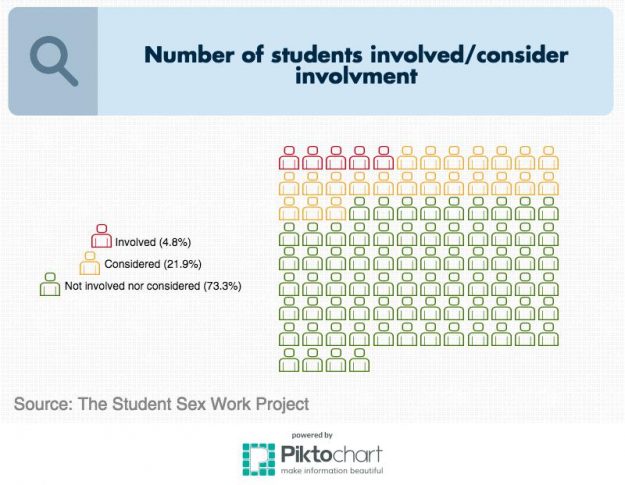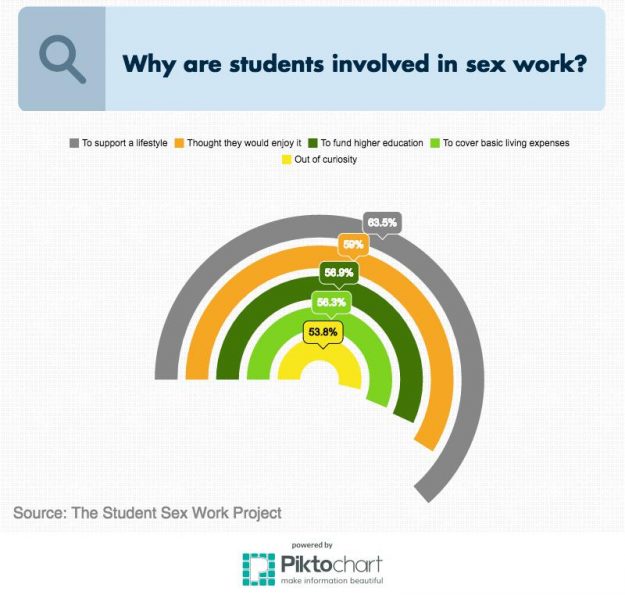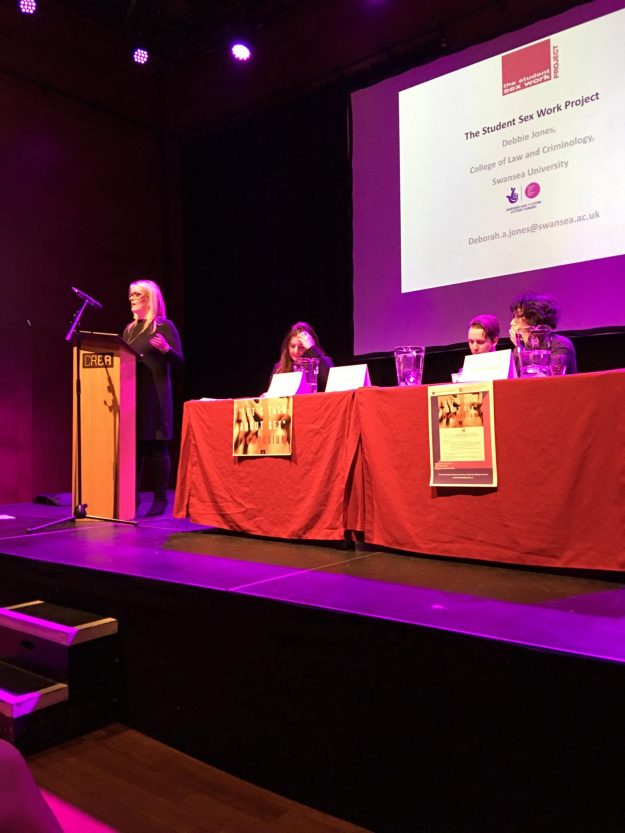Survey found that over one-fifth of university students across the UK had considered sex work. How are we reacting to this?

Rachel [nickname] always has so much on her plate. Working 14 hours a day nonstop, meeting new people, in and out of her house and her town. Not to mention doing all while completing a uni degree. And of course, she squeezes in to hang out with her friends. She is no different than any other ordinary students, except she could never answer where she gets her money from.
From time to time, Rachel would feel horrible, miserable, and lost about her life and her future. She feels like there is no way out. Little does everyone know she is living a double-life as a student and a sex service provider.
“I’ve convinced myself my work is going to destroy me. I’ve got to a point that it’s all just disgusting and grim. The money is not getting me anywhere. I’ve got to be a bloody escort. I am losing my head, but what can you do?” says Rachel in a video with The Student Sex Work Project (TSSWP), research group from Swansea University for student sex workers across UK.
But Rachel is not alone. According to a recent survey conducted by TSSWP on over 6,000 university students across the UK, 4.8% of them had been involved in some kind of sex work, while 22% of them had considered it.

Sex services can include direct sex work, aka escorting; indirect sex work, such as webcam sex; and performing organisational or auxiliary roles, traditionally known as ‘pimps’, according to the TSSWP.
“This is real. Looking at the various forms that sex work can manifest in, whether it’s on the Internet, whether it’s on the street, we’re all surrounded by it. There is no point of denying it or escaping from it now,” says Dr Tracey Sagar, one of the two leaders of the project.
But why sex work when students have so many other options? Financially supporting a lifestyle is the most common cause for students to enter, or consider entering, the industry. What comes next is the belief that they would enjoy the work.
Sagar suggests the result shows students think more than just about money. She says: “Money is driving the sex industry predominantly, but you cannot discount the curiosity and the desire of getting sexual pleasure.”

Given that providing sex services independently in our country is legal, and students could possibly get some ‘perks’ from it, why do some of them suffer? Being totally alone and off-the-radar while working is primarily what put most sex workers in danger. They could be out alone with strangers, and no one would have a clue if anything goes wrong.
Sagar says: “The law forces you to work in complete isolation, and that’s a safety issue, because no one else knows where you are going. The minute you live a double-life in secret, can you imagine the psychological pressure? You can’t even tell any friends because you worry about being judged.”
The stigma surrounding sex work has clouded life opportunities for students, especially for young practitioners in law and medical fields and the likes. Disclosing their identity as a sex worker could jeopardise their professional reputation, as well as the university’s, and therefore many of them would stay quiet even when they are encountering critical issues, such as sexual health risks. This leads them to be incredibly vulnerable.
“Like many other professional jobs, if a candidate makes clear that he/she has been a sex worker on the application for a legal job, it will be more difficult in terms of employment,” says Phillip Johnson, professor at Cardiff University Law School.
‘We all have a view about sex work, but views are often morally loaded, creating stigma and stereotyping – often… https://t.co/XkoIBV4pM6
— StudentSexWorkProj. (@TSSWP) February 3, 2017
Even when they do seek for university support service, more often than not they would be asked to remove themselves entirely from the industry. “It’s very dangerous to automatically take the moral high ground because that’s what you think is the right thing to do. Sometimes students don’t need to be rescued, they just need a little leg up with medical advice and that’s it,” says Debbie Jones, another leader of TSSWP.
“It’s quite disempowering to tell them what they do is wrong, especially when it’s legal,” she adds.

Despite the legitimacy to provide sex service, the duo state that they have never encouraged sex work, but they are concerned about the wellbeing of these workers. Stereotyping them will just make the situation even worse because all the unjustified perceptions can add to the student workers’ negative emotions.
Rachel, the student sex worker, says, “It’s really frustrating ‘cause sometimes guys forget that you’re not just an escort or a prostitute, or whatever you want to call us. I go to university, I volunteer. We do have lives.”
Whenever people reckon someone is an escort, they immediately put all the good qualities of that person aside and only focus on the fact that he/she gets paid by getting laid. Jones says it is unfair to think less of the student sex workers when they are no different than any other students out there.
The duo think it is not terminating sex work or criminalising it that will dissolve the stigma, but educating people more about it. “Commercial sex is ever-changing because it is consensual, we want to consume it,” Jones says, “Students have huge potential in taking up the educational work because they are not getting paid to be in universities, and that’s their strength. They should use it when they can.”

If you are a sex worker and think you could use some help, Safer Wales, a charity based in Cardiff, will be happy to talk to you.

